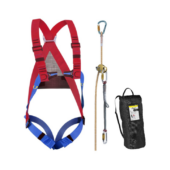In response to supply chain disruptions and economic upheavals, many companies are collaborating with more vendors to build supply chain resiliency and secure the best prices. The number of vendors increases management complexity and issue risk. A corporation may utilise spreadsheets to manage hundreds of suppliers. Supplier information management (SIM) organises vendor management and data organisation, giving firms greater data access and governance. These management solutions help procurement and accounting teams organise and scale.
We’ll discuss supplier information management today:
- Describe supplier information management.
- Supplier information management solution considerations
- Supplier information management advantages
- How SIM-enabled procurement saves time and money
Describing supplier information management
Supplier data management involves collecting, storing, verifying, and maintaining supplier and product data. Companies develop and manage a thorough supplier database on a cloud-based SIM system. This data aids performance assessments, budgeting, forecasting, etc.
SIM systems commonly comprise procure-to-pay (P2P) solutions. These technologies’ data centralization, dashboards, approval workflows, and spend analysis features help organisations control vendor performance while improving user experience.
SIM systems capture vendor business details and historical and benchmarking data. SIM systems may store the following data:
- Contact info
- Price and cost
- Ability to produce turnaround estimates
- Payment terms and accounting data
- Scheduled deliveries
- Data on past transactions
- price benchmarking
- Performance info
- Contract information
SIM enhances buyer-vendor communication, optimises SRM, and centralises data for future usage.
Considerations for SIM technology
Supplier information management (vendor management software) works well in a procurement platform. The finest platforms centralise vendor data and simplify procurement operations and curation across your organisation.
Look for these benefits when assessing technology solutions:
Intuitive, flexible use: SIM should be intuitive and adaptable. IT, management, and purchasers should find your solution easy to use. Find technology that simplifies everyday research, purchase, and reporting:
- Searching dynamically
- Preferable vendor curation
- Automation and approval workflows
- Spending guidelines by role
Data in real time: Continuous, granular spend data makes reporting easier and more effective. The system’s procurement function and vendors are shown consistently and completely.
Robust reporting and analytics: Accessible centralised data is most helpful. Spend insight guides vendor selection and performance, contextualises purchasing, and reveals savings and growth potential.
Integration potential: SIM should integrate into your information ecosystem. Avoid unnecessary data input, ensure correct figures, and decrease information silos using an off-the-shelf and API-based solution.
Find a solution that satisfies the above criteria to maximise your SIM programme, save money, and streamline your procurement process.
Supplier information management’s top 7 benefits
Supplier information management proves to improve procurement and financial performance. A procurement management solution like Order.co lets you handle data and procurement on one simple platform.
Supplier information management helps procurement in seven ways:
1. Centralises info
SIM centralises vendor data, simplifying purchase order preparation, processing, payment, and tracking. It helps find providers with the best pricing and services and track quality assurance standards. All departments and stakeholders can access an organised vendor communication and transaction record.
2. Manages performance
SIM lets companies monitor supplier performance. Centralised supplier information provides quality, contract compliance, cost savings, and other criteria for supplier selection. It boosts strategic sourcing and maintains cost performance. It also helps firms detect performance gaps and assess alternatives.
3. Governs information better
SIM protects communication against unauthorised access, prevents data loss or theft, and streamlines vendor management. This security is crucial when managing sensitive data like bank account details.
4. Reduces supplier risk
SIM helps companies keep supplier contact, financial, performance, and banking information current. It reduces supplier data tampering and procurement fraud by ensuring regulatory and legal compliance. Data security is crucial since over 70% of fraud-stricken organisations say an external attack or coordination between external and internal sources caused the most disruption.
5. Reduces AP processing loads
A supplier information system streamlines payments and eliminates human data entry, reducing invoice duplication and data entry errors and improving payment accuracy. Businesses may better track spending patterns, uncover cost reduction opportunities, and predict and budget by automating the payment process with SIM.
6. Accelerates purchase
Buyers may simply find supplier information such product availability, pricing, delivery timeframes, and payment terms with a centralised procurement solution. Buyers can rapidly locate vendors and make selections with information at hand. Order.co allows direct ordering and approval from within the system, speeding up procurement.
7. Allows KPIs and reporting
An SIM system helps managers and finance team leaders track KPIs like delivery timelines, product quality, order correctness, cost, and contract compliance. Visibility into vendor performance and real-time data improve procurement and supplier lifecycle management. Organisational stakeholders can immediately get actionable information for better decision-making through reporting.
Best 5 supplier information management tools
An organisation may keep complete visibility and speed up order and payment procedures by using a procurement management platform with powerful SIM features.
Think about these five solutions. Each delivers services and capabilities to maintain order correctness and vendor data integrity while letting stakeholders order independently.
1. Order.co
Small and mid-market enterprises may manage vendor profiles, transactions, payments, and other essential data with Order.co’s procurement platform. To maintain budget control and visibility, procurement managers can route orders, track fulfilment, and analyse cost by vendor, category, department, or other characteristics using its centralised system.
Features:
- Direct integrations or API connectors simplify vendor onboarding.
- User-friendly buyer self-service and curated vendor catalogue
- A procure-to-pay solution, it provides prompt, centralised vendor payment.
2. Coupa
The Coupa platform provides modular procurement solutions for enterprise organisations to centralise orders and payments. This platform improves third-party relationships and decreases vendor risk with onboarding, compliance, and AI-enhanced procurement monitoring.
Features:
- Automated email and paper-based invoice capture, as well as SIM integration with other company management and BI systems.
- Integration of procurement and contract management
3. Airbase
For financial administration and risk management, Airbase offers mid-market expenditure management. It integrates AP automation, expenditure management, and vendor data storage and relationship management. The platform streamlines SIM activities and allows vendors to input payment information.
Features:
- Email invitation for vendor self-service onboarding
- Third-party risk-reducing security
- Strong information system integrations
4. The SAP Fieldglass
Fieldglass, a SAP product, manages mid-market and corporate vendors. The Fieldglass app stores details, assignments, and workforce data needed to execute, administrate, and pay service-based contacts for every project.
Features:
- External workforce management for contingent and flexible staffing
- Statement of work (SOW) procurement management
- A self-service portal and extensive support for back-end providing administration
5. Precoro
Precoro is a complete procurement software for SMBs. It simplifies purchasing and controls spend. To improve data accuracy and supplier relationships, the platform enables powerful supplier management and vendor-led onboarding.
Features:
- Easy supplier onboarding with invitation-based portal
- Selectable modules for customisable management solutions
- Direct connectivity and open API with ERP and other data systems

















